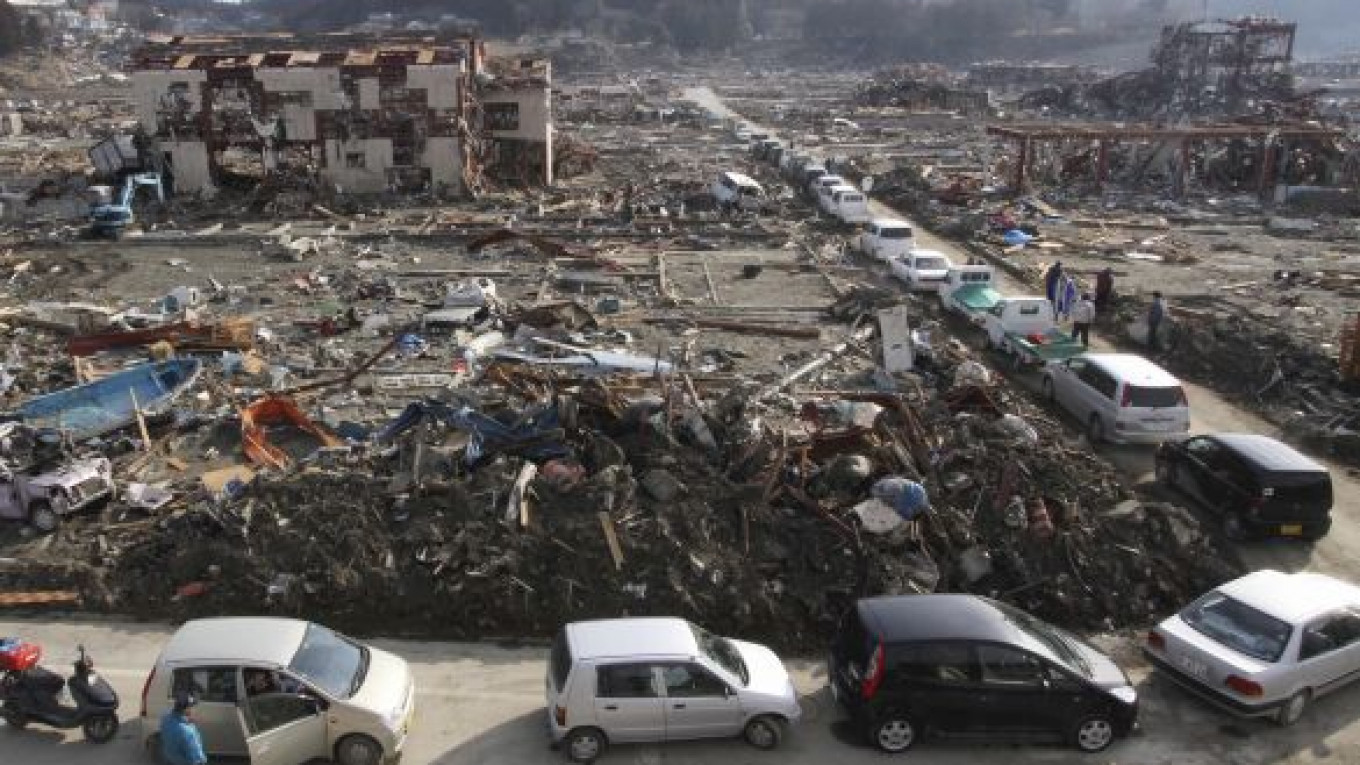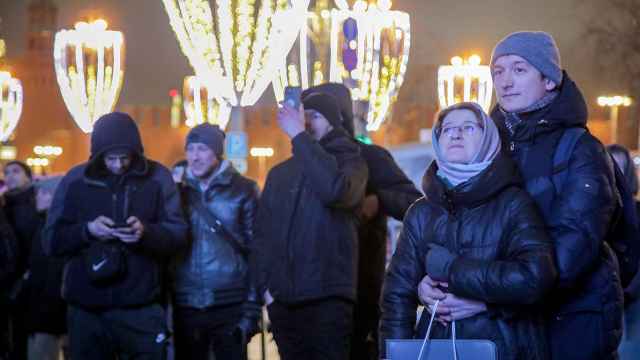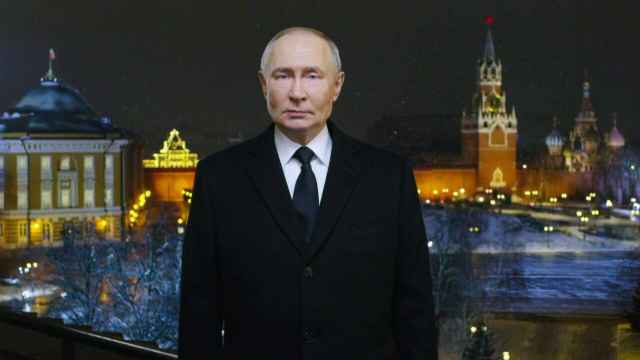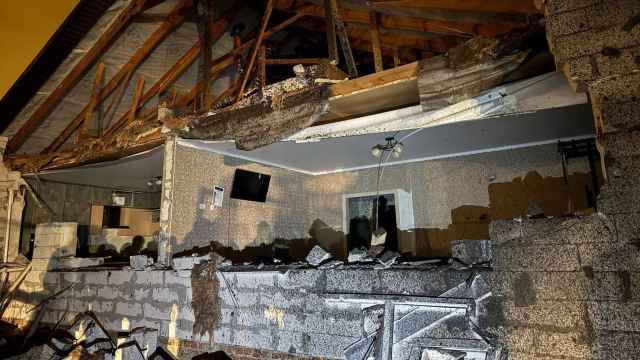Only a year ago, Russia's dominance as a global energy supplier was threatened by low gas prices and a reputation as an unreliable trade partner. But with the world now shaken by Japan's natural disasters and uprisings across the Middle East, the country is back at the heart of the market – and cashing in.
Gazprom rushed to sell extra gas to European nations when their supplies from Libya ran dry during the escalating violence there. It will also gain from selling energy to Japan, where an earthquake and tsunami have shut down 12 gigawatts of nuclear capacity.
Gazprom said this week that it was willing to ship more gas to Japan and is now in talks with several power-generating companies such as Tokyo Electric to sell them liquefied natural gas.
Japan's struggle to keep radiation from leaking at the Fukushima nuclear plant, meanwhile, has caused a deep rethink in the role of nuclear energy, particularly in Europe.
The upshot of the recent weeks' events, analysts say, is that fossil fuel producers stand to gain, particularly Russia.
"There's every reason to assume that these events are a game changer both for Gazprom and Russia because Russia is viewed as a much more reliable gas supplier, and the customers are more likely to want to lock in supplies," said Chris Weafer, chief strategist at UralSib.
While its reputation has in the past been tarnished by sudden gas cutoffs due to pricing disputes with Ukraine, Gazprom has always insisted it was reliable.
With unrest spreading across the Middle East and threatening major new sources of gas, like Algeria, that may no longer sound like an exaggeration.
Russia already provides two-fifths of Europe's gas imports, a figure could grow. Libya, by comparison, accounted for about 2 percent before its taps were turned off because of the conflict.
In Japan, where authorities are trying to avert a nuclear meltdown and find energy supplies to feed the electricity grid, Gazprom has taken the opportunity to try to gain a foothold in a market it has long been trying to crack.
Prime Minister Vladimir Putin said last week that Russia could re-direct Europe-bound liquefied natural gas — which can be transported by ship — to Japan while shipping more piped gas to Europe.
VTB Capital has estimated that events in Japan and Libya could add an extra 3 to 5 percent to Gazprom's sales this year — based on the assumption that Russia will sell an extra 10 billion to 15 billion cubic meters of gas to Europe and Japan.
In March, its sales were up by 1.5 billion cubic meters, or about 10 percent, compared with a year earlier.
The resurgence in Russia's and Gazprom's fortunes has been evident in the stock market. Shares in Gazprom have risen 11 percent in the past month —compared with a mere 2 percent rise in the 30-stock MICEX Index.
Experts say Russia could also take advantage of the greater levels of uncertainty in world energy markets — which have pushed crude prices to 2 1/2-year highs above $100 a barrel — to extract long-term concessions from Europe.
Moscow has been angry with EU plans to force gas producers to separate production from pipeline management — preventing one company from controlling the entire supply chain in a country. Because of that law, for example, Gazprom is forced to sell its pipeline in Lithuania.
In the longer-term, the nuclear plant disaster in Japan has also raised questions in Europe about the safety of nuclear power, which had often been viewed as a way of diversifying away from Russian gas supplies. Germany, for one, has ordered one nuclear plant to be closed and six other reactors shut down temporarily as a precaution.
Fossil fuels such as oil and gas — and sellers such as Gazprom — stand to benefit from the review of Europe's nuclear energy plans, market watchers said. "If it wasn't for the recent events, there would be hardly anything to cool the heads of European politicians who are eager to brush off the dependence on Russian gas at any cost," said Valery Nesterov, gas analyst at Troika Dialog.
But with European gas markets still oversupplied, Gazprom will still have to try hard to gain market share. "If Russia does not offer more reasonable gas prices, it will not be competitive," said energy expert Claudia Kemfert at the German Institute for Economic Research in Berlin.
Gazprom, however, insisted this week that its contracts with European companies are flexible and "balance interests of sellers and buyers."
Kemfert said the EU-backed Nabucco pipeline, one of Europe's main tools to get away from relying on Russia, and LNG from other countries could become ultimate winners of recent developments.
But while Nabucco still struggles to contract gas for its pipeline, Russia's rival project South Stream, which is expected to send up to 63 billion cubic meters of gas to central and southern Europe under the Black Sea, is becoming a reality. It got extra backing when Germany's BASF joined the project this week, promising to bring 2 billion euros ($3.1 billion) to the venture.
The European Commission's spokeswoman Nicole Bockstaller said in an interview that its position toward Gazprom and South Stream is unchanged.
A Message from The Moscow Times:
Dear readers,
We are facing unprecedented challenges. Russia's Prosecutor General's Office has designated The Moscow Times as an "undesirable" organization, criminalizing our work and putting our staff at risk of prosecution. This follows our earlier unjust labeling as a "foreign agent."
These actions are direct attempts to silence independent journalism in Russia. The authorities claim our work "discredits the decisions of the Russian leadership." We see things differently: we strive to provide accurate, unbiased reporting on Russia.
We, the journalists of The Moscow Times, refuse to be silenced. But to continue our work, we need your help.
Your support, no matter how small, makes a world of difference. If you can, please support us monthly starting from just $2. It's quick to set up, and every contribution makes a significant impact.
By supporting The Moscow Times, you're defending open, independent journalism in the face of repression. Thank you for standing with us.
Remind me later.






